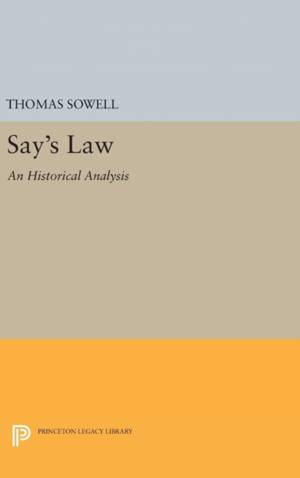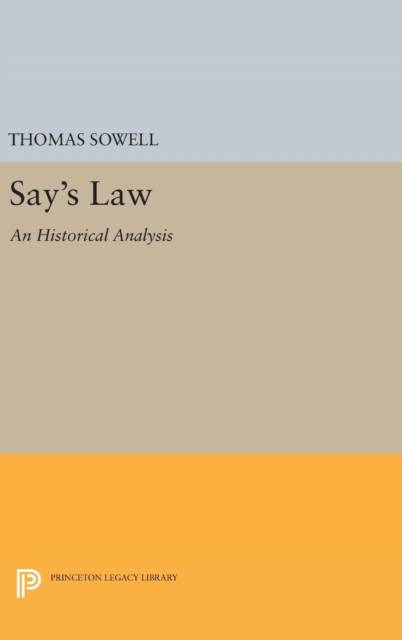
- Afhalen na 1 uur in een winkel met voorraad
- Gratis thuislevering in België vanaf € 30
- Ruim aanbod met 7 miljoen producten
- Afhalen na 1 uur in een winkel met voorraad
- Gratis thuislevering in België vanaf € 30
- Ruim aanbod met 7 miljoen producten
Omschrijving
Say's Law--the idea that "supply creates its own demand"--has been a basic concept in economics for almost two centuries. Thomas Sowell traces its evolution as it emerged from successive controversies, particularly two of the most bitter and long lasting in the history of the discipline, the "general glut controversy" that reached a peak in the 1820s, and the Keynesian Revolution of the 1930s. These controversies not only involved almost every noted economist of the time but had repercussions on basic economic theory, methodology, and sociopolitical theory. This book, the first comprehensive coverage of the subject, will be an indispensable addition to the history of economic thought. It is also relevant to all social sciences concerned with economic prosperity, with the nature of intellectual orthodoxy and insurgency, or with the complex relationships among ideology, concepts, and policies.
Originally published in 1972. The Princeton Legacy Library uses the latest print-on-demand technology to again make available previously out-of-print books from the distinguished backlist of Princeton University Press. These editions preserve the original texts of these important books while presenting them in durable paperback and hardcover editions. The goal of the Princeton Legacy Library is to vastly increase access to the rich scholarly heritage found in the thousands of books published by Princeton University Press since its founding in 1905.Specificaties
Betrokkenen
- Auteur(s):
- Uitgeverij:
Inhoud
- Aantal bladzijden:
- 256
- Taal:
- Engels
- Reeks:
- Reeksnummer:
- nr. 1591
Eigenschappen
- Productcode (EAN):
- 9780691646435
- Verschijningsdatum:
- 19/04/2016
- Uitvoering:
- Hardcover
- Formaat:
- Genaaid
- Afmetingen:
- 156 mm x 234 mm
- Gewicht:
- 535 g

Alleen bij Standaard Boekhandel
Beoordelingen
We publiceren alleen reviews die voldoen aan de voorwaarden voor reviews. Bekijk onze voorwaarden voor reviews.











